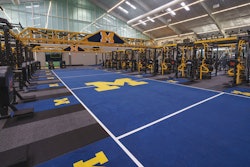Copyright 2014 Gannett Company, Inc.
All Rights Reserved
One of the nine judges who picked a young Russian skater over two more refined competitors for the Olympic gold medal Thursday night was suspended for a year for trying to fix an event at the 1998 Winter Olympics in Nagano.
And another is the wife of the former president and current general director of the Russian figure skating federation.
Another Olympics, another huge skating controversy involving the countries of the former Soviet Union.
The issue of inflated scores for the Russians has been a hot topic of conversation at these Games, and the women's figure skating long program Thursday night renewed the debate. Adelina Sotnikova of Russia was the surprising winner of the gold medal, upsetting reigning Olympic gold medalist Yuna Kim of South Korea and Italy's Carolina Kostner.
"It's sad that I just presumed Sotnikova was going to get a boost (in points) because this was in Russia," former U.S. Olympic figure skating coach Audrey Weisiger said in a phone interview. "Isn't it sad that I automatically thought that? Not one person in skating I've talked to said that's the way it should have gone."
"I was surprised with the result," Joseph Inman, a top U.S. international judge who was on the women's panel at the 2002 Olympics, said in a phone interview.
"That's not fair to see Carolina and Yuna, who have great skating skills and had great skating tonight -- good jumps, nice presence on the ice, maturity, expression -- could be six points behind somebody who has tremendous skill but is just coming out of juniors," said Gwendal Peizerat, the 2002 ice dancing gold medalist from France, who is a television commentator here.
"Compared to Carolina, compared to Yuna, something has happened."
The nine judges for the short and long programs are chosen by draw from a pool of 13, with eight of the judges only working one event or the other. Judges from the USA, South Korea, Great Britain and Sweden were not chosen to work the women's long program after being on the women's short program panel the night before.
Two of their replacements were Ukrainian Yuri Balkov, who was kicked out of judging for a year after being tape-recorded by a Canadian judge trying to fix the Nagano ice dancing competition, and Alla Shekhovtseva, a Russian judge who is married to Valentin Pissev, the Russian federation general director. The two other new long program judges were from Estonia and France, which was the country that conspired with Russia to try to fix the pairs and ice dancing competition at the 2002 Olympic Games in Salt Lake City.
"The (judging) panel made me wish that the United States and Canada had split up into many different countries," said choreographer Lori Nichol, who works with Kostner and fourth-place finisher Gracie Gold of the USA, among others.
In other words, the Cold War is alive and well in the Olympic figure skating venue.
What happened Thursday in the women's figure skating competition was worse than the 2002 Salt Lake City pairs judging scandal because, this time, we'll never find out who might have done what because all the judges' scores are now anonymous. In 2002, French judge Marie-Reine Le Gougne's scores were easily identifiable. But in 2004, the International Skating Union adopted a new judging system in which all judges scores are now totaled into two numbers: a total element score and a total program component score.
The idea was to help eliminate bloc judging and cheating, but the result is that the system now hides, and even can protect, those who are not playing by the rules.
U.S. Olympic team bronze medalist Ashley Wagner said she was not able to watch much, if any, of the medalists' performances because she was competing in the final group of skaters. But she herself was the recipient of some questionable judging, finishing seventh, two places below Julia Lipnitskaia, even though Wagner never fell and Lipnitskaia fell in her short and long programs.
"People need to be held accountable," Wagner said after the competition, "they need to get rid of the anonymous judging. There are many changes that need to come to this sport if we want a fan base because you can't depend on this sport to always be there when you need it. ... This sport needs to be held more accountable with its system if they want people to believe in it."
Terms and Conditions Privacy Policy































